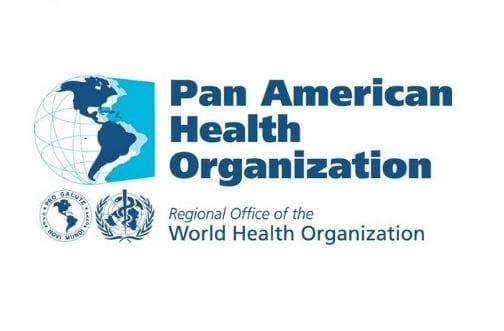
The Pan American Health Organization (PAHO) is calling for greater focus in preventing congenital transmission of Chagas in the Americas, including the Caribbean.
Chagas is a parasitic, systemic, and chronic disease caused by parasites.
With vector transmission of Chagas interrupted in 17 out of 21 affected countries in the Americas, and screening for the disease in blood banks universalized, PAHO said “the future of the fight against the disease must now focus on maintaining achievements and preventing congenital transmission.”

PAHO said this was the conclusion of a meeting it convened here to discuss the current status of Chagas, as well as future management of the disease.
“The region has made considerable advances in addressing Chagas since the 1990s, and this meeting has marked a point of inflection at a time when the dynamics and epidemiology of the disease has changed,” said Luis Gerardo Castellanos, head of PAHO’s Neglected, Tropical and Vector-borne diseases Unit.
“The occurrence of new cases has reduced in all countries, but around six million people still live with the disease, many of whom are unaware of their status,” he added. “The migration of people from endemic areas to urban areas also means that we must take measures to detect and treat everyone affected, including those in cities.”
The parasites that led to Chagas are mainly transmitted to humans by triatomine bugs, known as “kissing bugs,” but can also be transmitted via blood transfusions, organ transplants, the consumption of contaminated food, and from mother to child during gestation.
It is estimated that there are 30,000 new reported cases of Chagas each year in the Americas, and 14,000 people die as a result of the disease.More than 70 million people live in areas where there is high-risk of transmission.
“Chagas is a silent disease that tends to pass undetected, either by health care professionals with little experience in its diagnosis, or by patients themselves, who experience few if any symptoms,” said Roberto Salvatella, PAHO Regional Advisor for the Prevention and Control of Chagas.
“We need to integrate the treatment of Chagas into the health system of each country so that healthcare workers are better aware of the disease and can provide necessary treatment,” he added.
PAHO said it is estimated that, in the long term, 30 percent of chronic infections will develop complications that will have serious and irreversible consequences on the nervous system, the digestive system and the heart.
“If the disease is detected in time, however, it can be cured and prognosis improved,” PAHO said. “Even if diagnosed during the chronic phase, treatment can still prevent or delay its progress.”
Salvatella underscored the need to continue efforts to eliminate the vector transmission of Chagas in countries that have still not been able to do so, and to improve information systems in order to ensure access to the latest data about the disease.
Delegates at the meeting also agreed that preventing the transmission of Chagas from mother to child should be a primary area of focus and resources.
About 9,000 babies are born each year with Chagas in the Americas, accounting for 30 percent of all new infections, PAHO said.
It said a baby born to a mother infected with Chagas has between a 2 to 8 per cent chance of contracting the disease during gestation and birth.
In 2017, PAHO said it launched a new framework to prevent mother to child transmission of four diseases, including Chagas, by 2020.
It is estimated that around 1.1 million women of child-bearing age in the region are infected with the T.cruzi parasite.
In order to prevent this type of transmission, PAHO recommends the implementation of universal screening of pregnant women and newborns in order to identify their status and, if necessary, start curative treatment.
PAHO also advised that, if a woman tests positive for Chagas, her other children should also be diagnosed and treated.
PAHO said improving access to the prevention, diagnosis and treatment of Chagas for women and children falls in line with its universal health strategy, “which aims to ensure health for all, with no one left behind.”
Advertise with the mоѕt vіѕіtеd nеwѕ ѕіtе іn Antigua!
We offer fully customizable and flexible digital marketing packages.
Contact us at [email protected]
















